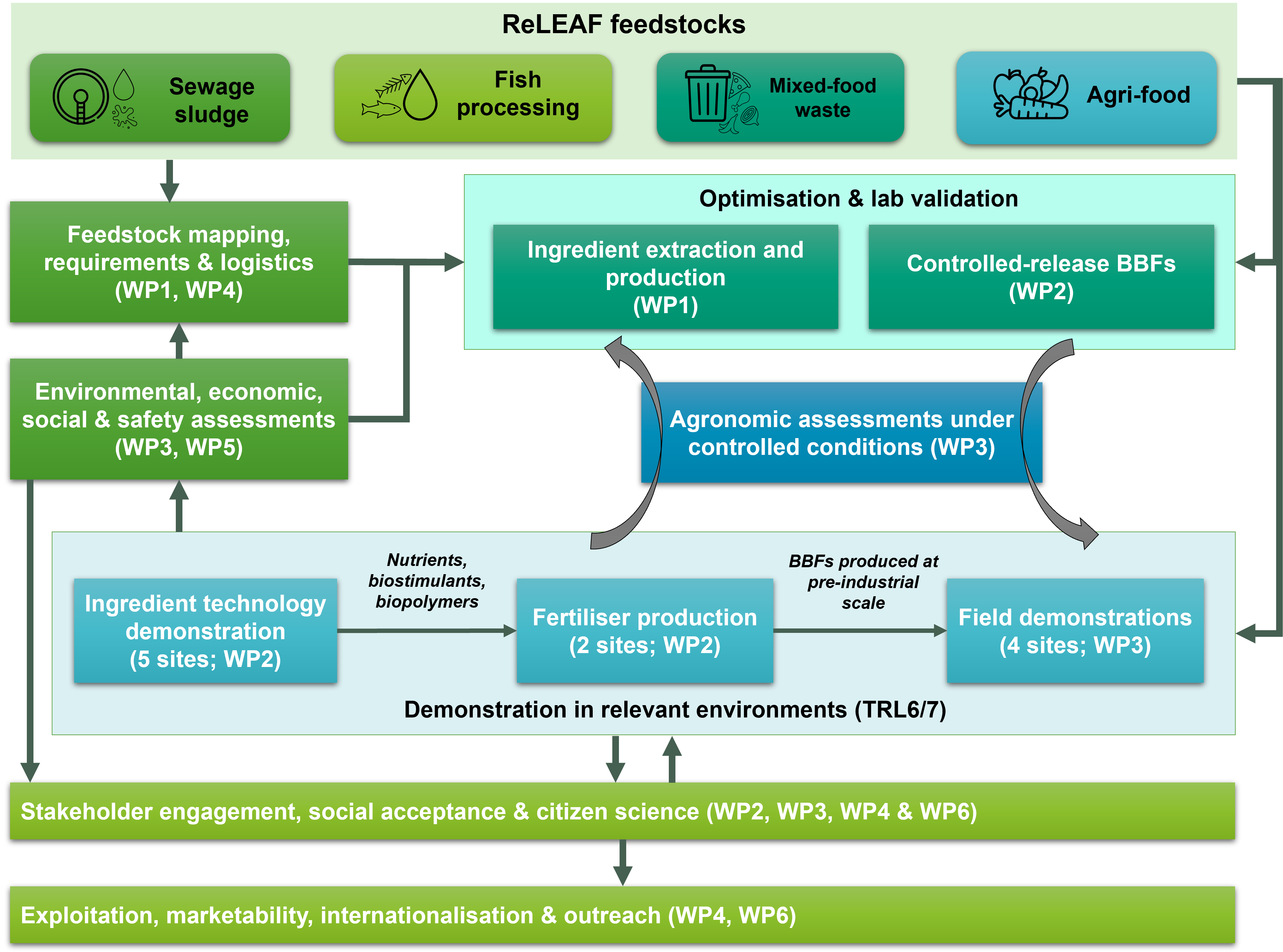ReLEAF – Recycling Locally Produced Bio-Wastes to Ensure Affordability and Availability of Innovative Bio-Based Fertilisers
At the core of the ReLEAF project is the belief that sustainable agriculture and waste management can coexist harmoniously to create a greener and more resilient future for Europe. Recognizing the urgent need to address environmental challenges and the dependency on foreign supply chains for vital nutrients, we embarked on a mission to transform waste streams into valuable bio-based fertilisers (BBFs).
The project will demonstrate suitable extraction techniques in 5 sites across Europe by developing cutting-edge methods to extract key BBF ingredients from diverse waste streams, such as sewage sludge, fish processing waste, mixed food waste, and agri-food residues. These efforts are driven by a vision to reduce dependency on traditional, non-renewable fertiliser sources, such as phosphorus, potassium, and petroleum-based nitrogen, and to enhance the security of supply within European borders. The project will engage with stakeholders to promote widespread acceptance and industrial scale-up of bio-based fertilisers, thus contributing to sustainable agriculture in Europe.
The ultimate goal is to contribute to the “A Soil Deal for Europe” Mission, expanding the BBF knowledge base throughout Europe and helping to secure a sustainable and self-sufficient agricultural future for the continent.


Check the project website
Project coordinator
- Leitat Technological Centre, Spain
Project partners
- Alma Mater Studiorum - Università di Bologna, Italy
- RITTMO Agroenvironnement, France
- Consiglio Nazionale Delle Ricerche, Italy
-
NOVA ID, Portugal
-
Agricultural University of Krakow, Poland
-
Forschungsinstitut fur Biologischen Landbau Stiftung (FIBL), Switzeland
-
Instituto de Soldadura e Qualidade, Portugal
-
Stichting EFFOST - European Federation of Food Science and Technology, The Netherlands
-
Alchemia-nova research & innovation gemeinnützige GmbH, Austria
-
Ecopesce – Economia del Mare di Casali Roberto, Italy
-
Aeris Tecnologias Ambientales SL, Spain
-
Nuevas Tecnologias para el Desarrollo de Packaging y Productos Agroalimentarios con Componente Plastica SL (TECNOPACKAGING), Spain
-
Global Omnium Medioambiente, S.L.. Spain
-
Anecoop Sociedad Cooperativa, Spain
-
TIMAC AGRO Italia S.p.A., Italy
-
Ineuvo Ltd, United Kingdom